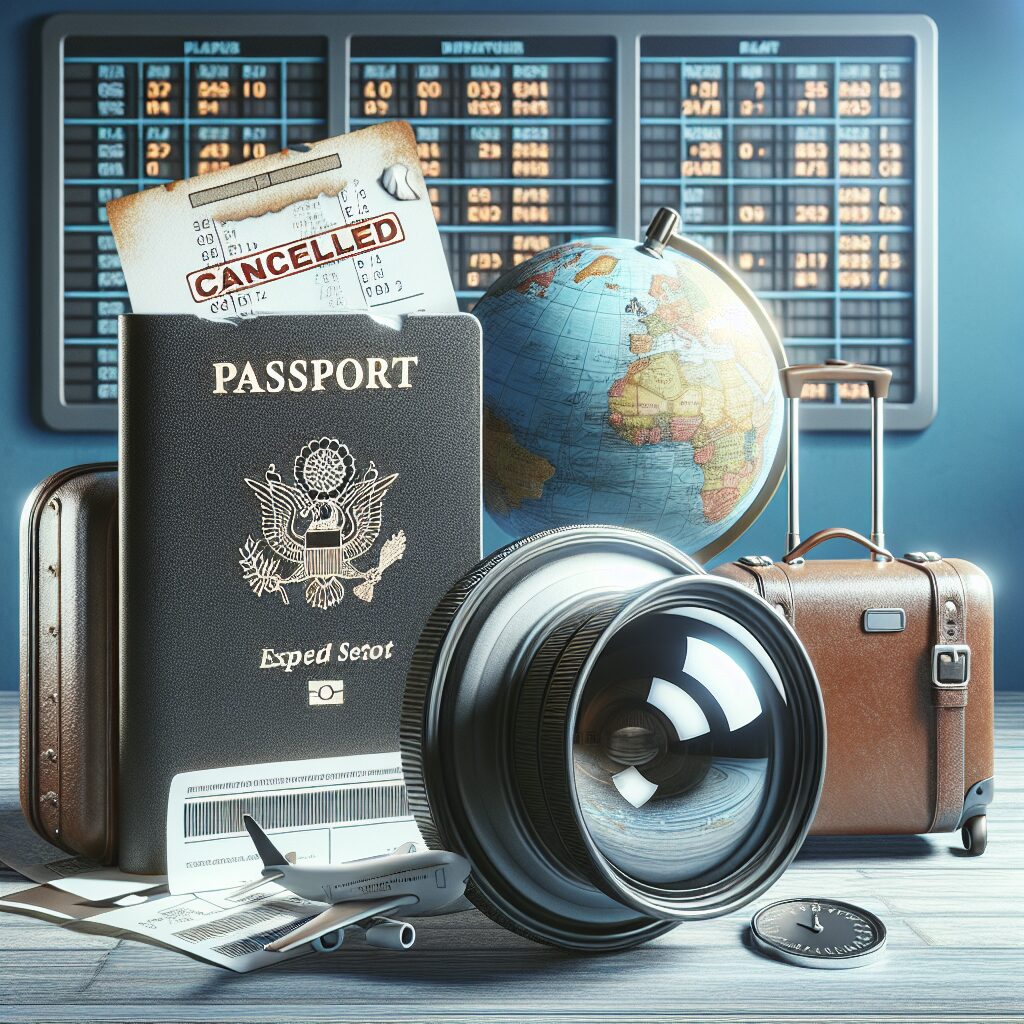The evolution of the healthcare industry has birthed an innovative niche for medical professionals willing to don dual hats—those of care providers and wanderlust quenchers. Travel Physician Assistants (PAs) are certified medical practitioners who have taken the road less traveled, literally. These are highly trained individuals who fill temporary positions across various healthcare settings, predominantly in regions that are experiencing staff shortages or in facilities that require specialized assistance due to unforeseen circumstances. This career path is not only redefining their work-life balance but also ensuring that underserved communities receive timely and expert healthcare services.
Delving deeper into this intriguing professional realm, we come across the significant impacts and unique features that epitomize the life of a Travel PA. For instance, these transient clinicians enjoy the luxury of exploring diverse geographical landscapes and cultural environments while practicing medicine. They bring with them a breadth of knowledge and adaptability that is invaluable, particularly in areas facing healthcare disparities. In the forthcoming sections of the article, we will dissect the key takeaways that define the career trajectory of a Travel Physician Assistant. This includes the challenges they face, the rewards that accompany their distinctive choice, and the path one can take to embark on this exciting journey—an exploration that promises to keep the reader informed and perhaps, even enticed by the possibility of such a dynamic profession.
Essential Insights
1. Travel Physician Assistants (PAs) are highly trained medical professionals who accept temporary positions in various locations, often filling in during staffing shortages at healthcare facilities. They maintain a broad range of medical skills, enabling them to adapt to different practices and patient needs. Their travels can take them to rural areas, urban centers, or even internationally, providing care in a multitude of settings such as hospitals, clinics, and emergency rooms.
2. The practice settings for Travel PAs can be diverse and demand flexibility and adaptability. These temporary assignments can range from a few weeks to several months and offer opportunities to gain experience in a variety of specialties. The transient nature of the work means that Travel PAs must quickly acclimate to new environments, medical teams, and patient demographics.
3. Taking on the role of a Travel PA can come with significant benefits, including competitive pay with the potential of higher earnings compared to permanent positions. Financial incentives often include housing stipends, travel reimbursements, and compensation for living expenses during assignments. This dynamic role is particularly appealing to those seeking adventure, professional growth, and the chance to explore different regions and healthcare systems.
4. Despite the benefits, the lifestyle of a Travel PA carries unique challenges, such as obtaining and managing multiple state licenses, adapting to different electronic medical records systems, and frequently adjusting to new workplace cultures. Additionally, Travel PAs must consider the implications of temporary work on their personal lives, including the impact on family and relationships, and the potential for professional isolation without a consistent team or community.
5. To become a successful Travel PA, individuals must possess strong clinical skills, be excellent communicators, and be capable of integrating swiftly into new teams. Networking with staffing agencies specialized in placing travel healthcare professionals can be an effective strategy for finding opportunities. Continuous professional development and staying current with licensing requirements across various states are crucial for maintaining a successful and dynamic career as a Travel Physician Assistant.
Existence of Traveling Physician Assistant Roles in Healthcare
Defining the Role of a Travel Physician Assistant
Travel Physician Assistants (PAs) are medical professionals who fill temporary positions in a variety of healthcare settings. They are highly trained to provide diagnostic, therapeutic, and preventive healthcare services, working under the supervision of a physician. As part of their role, Travel PAs may conduct physical exams, diagnose illnesses, develop treatment plans, and prescribe medications.
How Travel PAs Differ From Permanent PAs
The primary difference between Travel PAs and their permanently placed counterparts is the temporary and often contractual nature of their work. While permanent PAs have a fixed workplace, Travel PAs may move between locations, which can include hospitals, clinics, and private practices, based upon the need for their services. Their work may involve short-term assignments ranging from a few weeks to several months.
Benefits of Being a Travel Physician Assistant
Travel PAs enjoy several professional and personal benefits. On the professional side, they have the opportunity to work in diverse clinical environments, thereby gaining a breadth of experience. Additionally, they often receive competitive compensation, with housing and travel expenses typically covered by the staffing agency or healthcare facility. Personally, they can explore different regions and cultures, offering a balance of work and life adventures.
The Demand for Travel Physician Assistants
The demand for Travel PAs fluctuates with healthcare staffing needs, which can be influenced by factors like local shortages, seasonal population changes, or the absence of permanent staff due to illness, leave, or prolonged hiring processes. These dynamics create a market where Travel PAs are sought after to provide continuous patient care without the delay or expense of recruiting permanent staff.
Specialties and Practice Areas
Travel PAs work across all medical specialties, from primary care to surgery, emergency medicine, and beyond. Depending on their qualifications and experience, they may choose assignments that align with their interests, allowing them to deepen expertise in a particular field or to broaden their clinical skills by rotating through various specialties.
Certification and State Licensure for Travel PAs
Like all PAs, those who travel must be certified by the National Commission on Certification of Physician Assistants (NCCPA). Additionally, they must obtain licensure in each state where they practice. This can require a strategic approach to selecting assignments and staying current with varying state regulations and continuing education requirements.
Challenges Confronted by Travel Physician Assistants
Despite the exciting aspects, Travel PAs also face challenges such as adjusting to new clinical environments, adapting to different workplace cultures, and the absence of long-term colleague relationships. Additionally, the transient nature of the job may not suit those who prefer stability or have family commitments that limit travel.
Agencies and Resources for Travel PAs
Staffing agencies specialized in healthcare play a crucial role in connecting Travel PAs with opportunities. These agencies provide services that include job placement, licensing assistance, travel coordination, and negotiation of employment terms. Online forums, professional networks, and continuing education conferences are also valuable resources for Travel PAs seeking job opportunities and professional support.
How to Succeed as a Travel Physician Assistant
To thrive in this role, PAs should be adaptable, proactive in their career development, and possess strong communication skills. Networking with other healthcare professionals and staying informed about industry trends can also pave the way for a successful career as a Travel PA. Flexibility and a keen sense of adventure can make traveling as a PA an enriching career choice.
Future Outlook for Travel Physician Assistants
The healthcare industry is dynamic, and the need for flexible staffing solutions such as Travel PAs is likely to grow. Factors like an aging population, healthcare reform, and physician shortages may continue to drive demand for these professionals, suggesting a positive job outlook for those interested in pursuing a career as a Travel PA.
What Are Some Essential Tips for Aspiring Travel Physician Assistants?
- Gain diverse clinical experience to increase your adaptability to different work environments.
- Maintain an updated CV with relevant certifications and state licenses.
- Build a robust professional network, online and offline, within the PA community.
- Partner with a reputable healthcare staffing agency that understands your career goals.
- Engage in continuous learning to keep abreast of the latest medical practices and technologies.
- Consider the implications of travel on your personal life and plan accordingly.
- Stay organized and proactive about the logistics of your assignments, from housing to transportation.
- Develop a strong support system, personally and professionally, to help navigate the challenges of travel.
What Is a Travel Physician Assistant?
A travel physician assistant is a medical professional who works on a temporary, contractual basis at various healthcare facilities. They are similar to locum tenens physicians and are utilized to fill short-term staffing needs at hospitals, clinics, or other healthcare settings.
How Long Do Assignments for Travel Physician Assistants Typically Last?
Assignments can vary significantly, lasting from a few weeks to several months, depending on the needs of the hiring facility and the agreement with the physician assistant.
What Kind of Qualifications Are Required to Become a Travel Physician Assistant?
Travel physician assistants must hold a valid PA-C certification and usually require state licensure for the state in which they will be working. They also need to have relevant clinical experience and ideally should be adaptable to new environments and teams.
Can Travel Physician Assistants Work Internationally?
While there are opportunities for physician assistants to work internationally, these positions often require additional certifications and a thorough understanding of the local healthcare system, regulations, and sometimes a proficiency in the local language.
Are There Specialized Agencies for Travel Physician Assistants?
Yes, there are staffing agencies that specialize in placing travel physician assistants in temporary positions. These agencies assist with the logistics of finding positions, negotiating contracts, and ensuring compliance with state regulations.
What Are the Benefits of Being a Travel Physician Assistant?
Traveling PAs can experience a diverse range of clinical settings, have flexible schedules, and often receive competitive pay. They can also explore different geographic locations while advancing their careers.
Are Malpractice Insurance and Other Benefits Provided for Travel Physician Assistants?
Most agencies provide malpractice insurance and may offer additional benefits such as health insurance, housing stipends, and travel reimbursement. The specifics can vary based on the contract and the agency involved.
How Does Licensing Work for Travel Physician Assistants Moving Between States?
Physician assistants must be licensed in each state where they practice. Some states participate in the Interstate Medical Licensure Compact, which can streamline the licensing process for eligible professionals. However, others may need to go through the regular application process for each state.
Do Travel Physician Assistants Have the Opportunity for Permanent Placement?
While the primary role of a travel PA is temporary coverage, some assignments can lead to permanent job offers if the facility and the PA find the arrangement mutually beneficial.
How Does the Job Market Look for Travel Physician Assistants?
The demand for travel physician assistants fluctuates with the changing needs of healthcare facilities but is generally good due to a nationwide shortage of healthcare providers and the growing acceptance of PAs in diverse medical roles.
Final Thoughts
The role of travel physician assistants is a unique and evolving area in the field of healthcare. The flexibility and variety it offers can be a perfect fit for those seeking to expand their clinical experience while enjoying the benefits of travel. The positive job outlook and diverse opportunities available make it an attractive option for many physician assistants looking to explore different healthcare settings or seeking a more flexible work-life balance.
Furthermore, the increasing healthcare staffing shortages in various regions and the rising need for medical services position travel physician assistants as vital contributors to the healthcare industry. As the healthcare landscape continues to adapt, travel physician assistants will likely play an even more significant role in delivering quality patient care across the nation and potentially abroad.











